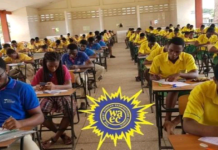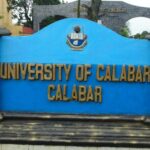The Tunisian Observatory for Higher Education and Scientific Research is concerned about an increase in exam cheating; a risk that threatens the value of academic qualifications and the global standing of Tunisian universities, alongside implications for students’ progression across academic levels.
In a statement issued in February, Najeh Salem, the head of the Observatory, said: “We monitored and received a large number of complaints about exam cheating by students through the use of mobile phones, lessons notes or documents specifically prepared for cheating, along with writing on the tables or even on the walls of the exams halls.“We have also been informed that some observers are facilitating cheating in exams by allowing students to speak to each other as well as allowing the use of mobile phones and documents [during exam sessions,” said Salem.
“In addition, we have been informed that some of the observers are reluctant to perform their roles as inspectors during exams and are not writing reports about cheating incidents,” he added.
“It threatens the value of academic degrees awarded and the ranking of Tunisian universities,” Salem said.
Another aspect he is concerned about is the fact that “successful students”, using fraud, may assume administrative positions.
“We remind the deans of faculties, directors of higher education institutions, members of scientific councils, university professors and all parties involved about the illegality of cheating and even attempted cheating as both of these are equally punishable under the law,” said Salem.
Subsequently, he called on various intervening parties to confront exam cheating to limit its spread and prevent repercussions for the entire higher educational system.
Reasons For Cheating
Professor Sami Hammami, the former vice-president of the University of Sfax in Tunisia, told University World News that the management of the exam process is not always flawless, but teachers’ working conditions may affect monitoring.
For instance, teachers have to invigilate numerous assessment sessions and this may cause a decrease in vigilance towards fraudsters,” Hammami pointed out.
Expanding further, Kais Mabrouk, the managing director of EIGHT University, the International School of Hotel Management of Tunis, told University World News the increase in cheating can be attributed to weaknesses in the education system such as a lack of resources and motivation that affects quality teaching and increased teaching – along with a culture in which cheating has become “normalised”.
“Other reasons for cheating include the presence of sophisticated technological tools, the increase in cheating in pre-university education as well as pressure upon students to perform well and pass their exams, which encourages cheating along with the precariousness of students, some of whom are forced to work [and study] at the same time,” added Mabrouk.
Mabrouk’s view is supported by a 2019 Tunisian study which stated that, “The manifestation of deviant conduct during university examinations is the result of the earlier acquisition of a culture of academic norm violation in pre-university education.”
Innovative Assessments
For Mabrouk, the problem has a generational dimension. “Today’s youth find the current pedagogical, anagogical, and epistemological approach outdated and archaic,” he said.
For example, the limited human abilities and capacity to handle students in examination centres could be dealt with by using an automatic invigilation system that monitors suspicious activities in real-time examinations as indicated in the August 2022 study, ‘Implementation of an Intelligent Exam Supervision System Using Deep Learning Algorithms’.Mabrouk also suggested open-book tests. Open-book tests promote the development of critical thinking and problem-solving skills over the rote memorisation of factual information as it examines students’ knowledge and organisation rather than memorisation, said Mabrouk.
“Open-book exams reduce cheating since all the information that a student would wish to look up is already with them,” Mabrouk added.
“The model and method of assessing learning and skills should also be changed,” Mabrouk suggested. “Besides engaging students in the learning and assessment process, it is essential to explain more to students why they need the knowledge and skills, and why they are going to be assessed, and how.”
Possible solutions include a change in mentality and academic methodologies through integrating the values of honesty, integrity and transparency into schools at a very early stage and consolidating it at university level, he suggested.
Hammami is also in favour of changes in the system, including a system of punishment through disciplinary councils.
“The quality and credibility of our diplomas are at stake and the ministry of higher education as well as the universities must take the necessary measures to stop this scourge,” said Hammami.
Curled from World University News














